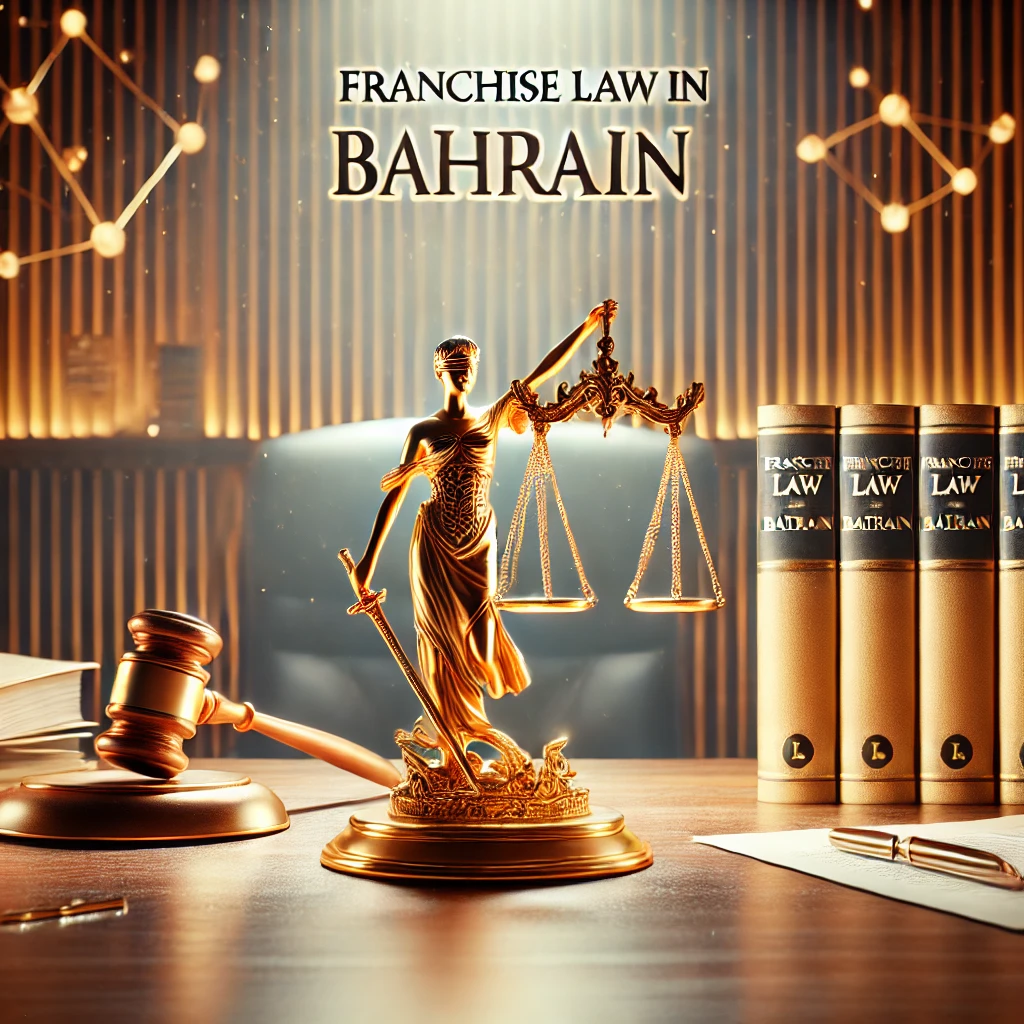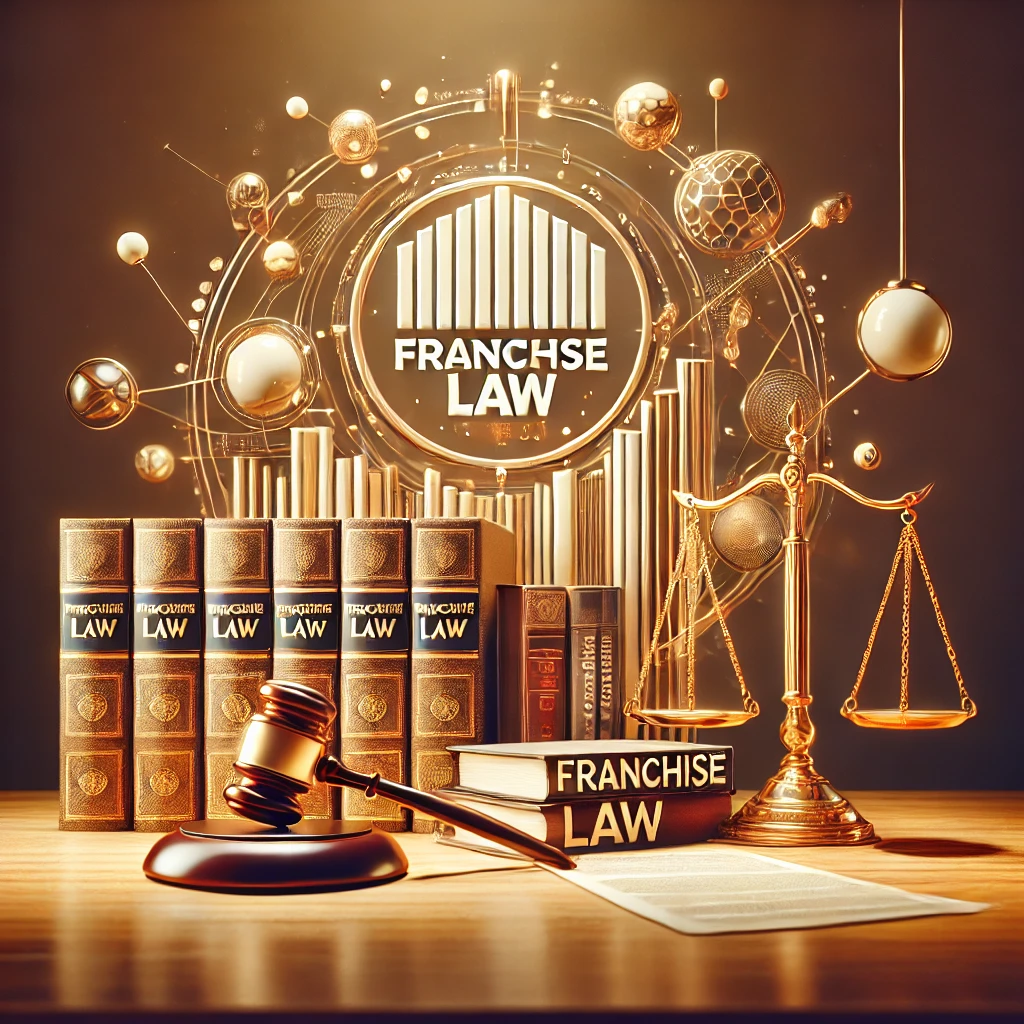
Franchise Law in Bahrain: Navigating Franchise Opportunities with the Help of a Franchise Lawyer
Franchising is an exciting way for businesses to expand into new markets, and Bahrain has become an increasingly popular location for franchisors. With a well-developed legal system, Bahrain offers both local and international investors the opportunity to establish franchise businesses. However, understanding the local laws and regulatory landscape is key to a successful franchise. A Franchise Lawyer in Bahrain can be instrumental in guiding franchisors and franchisees through the complexities of Bahrain’s franchise laws and ensuring compliance with all regulatory requirements.

1. Introduction to Franchising in Bahrain
Franchising is a business model that allows one party, the franchisor, to grant rights to another party, the franchisee, to operate under their brand and use their business processes. This enables the franchisee to leverage an established brand name and benefit from the training and expertise provided by the franchisor. In Bahrain, franchising is regulated under commercial and agency laws. The Ministry of Industry, Commerce, and Tourism (MOICT) plays a crucial role in overseeing franchise agreements and ensuring that the contractual terms comply with Bahraini regulations.
Franchising has gained momentum in Bahrain due to the increasing demand for international brands and the country’s investor-friendly policies. As Bahrain continues to modernize its economy, more local and international businesses are exploring franchise opportunities as a means of expanding their operations.
What is franchising and why is it popular in Bahrain?
Franchising is a method of expanding a business by granting others the right to use the brand and business model. It is popular in Bahrain because of the growing consumer demand for international brands and the country’s favorable business environment.
2. Regulatory Framework for Franchising in Bahrain
In Bahrain, franchising is governed by a combination of commercial laws and agency regulations. The laws related to franchising are designed to protect both the franchisor and the franchisee, ensuring a fair and transparent business relationship. A Franchise Lawyer in Bahrain can help parties navigate these regulations and draft agreements that comply with local law.
2.1 Commercial Agency Law
Under the Commercial Agency Law, franchise relationships may sometimes be classified as agency relationships, depending on the nature of the contract. The MOICT requires that certain franchise agreements be registered to ensure compliance. This registration is vital for the franchisee to obtain legal protection under Bahraini law.
The Commercial Agency Law primarily governs relationships where an agent is given the right to distribute goods or services on behalf of a principal. If the franchise agreement involves distribution, it may be subject to this law. A Franchise Lawyer can help determine whether the agreement needs to be registered as an agency.
2.2 Key Regulatory Bodies
- Ministry of Industry, Commerce, and Tourism (MOICT): Responsible for regulating commercial activity, including franchise agreements. All franchise agreements must be registered with the MOICT to gain legal recognition.
- Bahrain Chamber for Dispute Resolution (BCDR): Provides a forum for resolving disputes that may arise between franchisors and franchisees, offering mediation and arbitration services.
What government agencies regulate franchises in Bahrain?
The MOICT oversees franchise registrations and regulates compliance, while the BCDR offers dispute resolution services to resolve conflicts between franchisors and franchisees.
3. Franchise Agreement Requirements in Bahrain
A franchise agreement is a legal contract between the franchisor and the franchisee. It outlines the rights and obligations of both parties, including the terms of payment, training, intellectual property rights, and operational guidelines. Drafting a comprehensive franchise agreement is essential to avoid misunderstandings or disputes.
3.1 Key Elements of a Franchise Agreement

- Intellectual Property Rights: The franchisee is granted the right to use the brand’s intellectual property, including trademarks, logos, and operational manuals. This is critical for maintaining brand consistency across all franchise locations.
- Payments and Fees: The franchise agreement details all fees that the franchisee must pay, including initial franchise fees, ongoing royalty payments, advertising contributions, and any other applicable charges. Ensuring transparency regarding payments is vital for a strong franchise relationship.
- Training and Support: The franchisor is often required to provide ongoing training and support to the franchisee to maintain consistency in quality and operations. This may include initial training programs, on-site visits, and continuous operational support.
A Franchise Lawyer in Bahrain can assist in drafting franchise agreements that comply with both Bahraini law and international standards. Proper drafting of the franchise agreement is crucial for protecting the rights of both parties.
What are the key components of a franchise agreement in Bahrain?
The key components include intellectual property rights, payments and fees, training, and operational support. A Franchise Lawyer can ensure that all these components comply with Bahraini law.
4. Legal Considerations for Franchising in Bahrain
When franchising in Bahrain, both franchisors and franchisees must be aware of the relevant legal considerations. A Franchise Lawyer plays an essential role in ensuring compliance with these legal requirements and mitigating potential risks.
4.1 Registration Requirements
Franchise agreements must be registered with the MOICT to gain legal protection. This registration process helps ensure that the franchise operates in compliance with Bahraini laws and that the franchisee’s rights are protected.
The registration process involves submitting the franchise agreement and any other supporting documents to the MOICT. The franchisee must also obtain a commercial registration (CR) number, which is required for any business operating in Bahrain.
4.2 Intellectual Property Protection
Intellectual property is a significant aspect of any franchise. The franchisor must ensure that their brand’s trademarks and other intellectual property are registered and protected under Bahraini law. A Franchise Lawyer can assist in filing the necessary applications for trademark protection and ensuring that the intellectual property is used appropriately by the franchisee.
4.3 Termination of Franchise Agreements
The terms for terminating a franchise agreement must be explicitly outlined in the contract. Bahraini law allows for franchise agreements to be terminated under specific circumstances, such as breach of contract or failure to meet performance standards. A Franchise Lawyer can provide guidance on the legal grounds for terminating a franchise agreement and ensure that the process is carried out in accordance with the law.
How can a Franchise Lawyer help with intellectual property in Bahrain?
A Franchise Lawyer in Bahrain can assist in registering trademarks, protecting intellectual property, and ensuring that the franchisee uses these rights correctly in accordance with the franchise agreement.
5. Types of Franchises in Bahrain
There are several types of franchises commonly seen in Bahrain. Each type has different legal implications, and understanding these is essential for franchisors and franchisees alike.
5.1 Product Distribution Franchises
In this model, the franchisee is granted the right to distribute a franchisor’s products. The franchisor provides the branding and marketing support, while the franchisee sells the products. This type of franchise is common in sectors like automotive, beverage, and electronics.
5.2 Business Format Franchises
The most common type of franchise in Bahrain is the business format franchise, where the franchisee receives the complete business model, including branding, training, and ongoing support. The franchisor provides a turnkey solution, allowing the franchisee to replicate the established business model in their local market.
5.3 Management Franchises
In a management franchise, the franchisee takes on the role of managing a business on behalf of the franchisor. This model is common in industries like hospitality and services, where the franchisee manages operations rather than being involved in the day-to-day activities.
What are the types of franchises available in Bahrain?
The main types are product distribution franchises, business format franchises, and management franchises. Business format franchises are the most common, involving comprehensive support from the franchisor.
6. Legal Steps to Establish a Franchise in Bahrain
6.1 Drafting the Franchise Agreement
A Franchise Lawyer plays a crucial role in drafting the franchise agreement, ensuring it includes all the essential elements such as fees, obligations, and dispute resolution methods. The franchise agreement must comply with Bahraini commercial laws and any applicable international agreements.
6.2 Registering with MOICT
After drafting the franchise agreement, the next step is to register the franchise with the MOICT. This registration process is vital to ensure that the franchise is legally recognized in Bahrain. The registration provides legal protection for the franchisee, ensuring that they have the right to operate under the franchisor’s brand.
6.3 Obtaining a Commercial Registration (CR)
All franchises in Bahrain must obtain a Commercial Registration (CR) from the MOICT. This is a mandatory requirement for any business operating in Bahrain. The CR provides the legal authority to operate the franchise and ensures compliance with local regulations.
How do I register a franchise in Bahrain?
To register a franchise, the agreement must be drafted and submitted to the MOICT, along with all the necessary supporting documents, and a Commercial Registration (CR) must be obtained.
7. Dispute Resolution in Franchise Relationships
Disputes between franchisors and franchisees can arise for various reasons, including breach of contract or disagreements over operational guidelines. Bahrain provides a range of dispute resolution methods, including arbitration and mediation.
7.1 Arbitration and Mediation
The Bahrain Chamber for Dispute Resolution (BCDR) offers arbitration and mediation services to help resolve franchise disputes. These services are often preferred as they are faster and less formal than court proceedings. Mediation is a voluntary process that allows the parties to reach a mutually acceptable solution, while arbitration involves a binding decision made by an independent arbitrator.
7.2 Role of a Franchise Lawyer in Dispute Resolution
A Franchise Lawyer can represent either the franchisor or the franchisee in dispute resolution processes, providing legal guidance and ensuring the best possible outcome. The lawyer’s role is to protect their client’s interests, whether through negotiation, mediation, or arbitration.
How are franchise disputes resolved in Bahrain?
Disputes can be resolved through arbitration or mediation, often with the assistance of the BCDR. A Franchise Lawyer can help guide the process to ensure a fair resolution and protect the interests of their client.
8. Recent Developments in Franchise Law in Bahrain
Bahrain is continuously updating its commercial laws to make the country more business-friendly. Recent changes include streamlined processes for registering franchises and greater emphasis on protecting intellectual property rights.
8.1 Changes in Registration Requirements
The MOICT has simplified the registration process for franchise agreements, making it easier for franchisors to establish their businesses in Bahrain. This change is part of the government’s efforts to attract foreign investment and support economic diversification.
8.2 Enhanced Protection for Franchisees
Recent legal changes have also focused on enhancing protections for franchisees, including greater transparency in franchise agreements and stronger enforcement of intellectual property rights.
What recent changes have been made to franchise laws in Bahrain?
Recent changes include streamlined registration requirements, enhanced protections for franchisees, and a greater focus on protecting intellectual property rights, benefiting both franchisors and franchisees.
9. Benefits of Hiring a Franchise Lawyer in Bahrain
Hiring a Franchise Lawyer is crucial for anyone looking to establish a franchise in Bahrain. A lawyer can help in drafting agreements, registering the franchise, and ensuring compliance with local laws. Franchising involves multiple legal aspects, and having a knowledgeable legal advisor can prevent costly mistakes.
9.1 Drafting and Reviewing Contracts
A Franchise Lawyer ensures that all contracts comply with Bahraini laws and protect the interests of both parties. This includes reviewing the franchise agreement, negotiating terms, and ensuring that all clauses are clear and enforceable.
9.2 Ongoing Legal Support
Franchise relationships often require ongoing legal support to address any issues that arise during the operation of the franchise. A Franchise Lawyer can provide the necessary support to navigate these challenges and ensure that the franchise operates smoothly.
9.3 Dispute Resolution and Litigation
If disputes arise between the franchisor and franchisee, a Franchise Lawyer can represent their client in arbitration, mediation, or litigation. Having legal representation is essential for ensuring that the dispute is resolved fairly and efficiently.
Why should I hire a Franchise Lawyer in Bahrain?
A Franchise Lawyer helps draft agreements, ensures compliance with local laws, provides ongoing legal support, and represents clients in disputes, making them an essential partner in franchising.
10. Frequently Asked Questions About Franchising in Bahrain

1. What is a franchise in Bahrain?
A franchise is a business model where a franchisor allows a franchisee to use its brand, systems, and processes in return for a fee. It is a popular way for businesses to expand their presence in new markets.
2. What laws regulate franchises in Bahrain?
Franchises are regulated by commercial laws and the Commercial Agency Law, overseen by the MOICT.
3. Do I need to register a franchise agreement in Bahrain?
Yes, registration with the MOICT is required to ensure legal compliance and protect the rights of both the franchisor and franchisee.
4. How does a Franchise Lawyer assist with franchising in Bahrain?
A Franchise Lawyer helps draft contracts, ensures compliance with local regulations, provides legal representation in disputes, and offers ongoing legal support.
5. What are the fees involved in franchising in Bahrain?
Fees include an initial franchise fee, royalty payments, and other costs as outlined in the franchise agreement. A Franchise Lawyer can help outline these fees clearly in the contract.
6. Can foreign nationals establish a franchise in Bahrain?
Yes, foreign nationals can establish franchises in Bahrain, subject to compliance with local laws and regulations.
7. How is intellectual property protected in a franchise?
Intellectual property must be registered with the appropriate authorities, and a Franchise Lawyer can assist with this process to ensure proper protection.
8. What is the role of MOICT in franchising?
The MOICT oversees the registration and regulation of franchise agreements to ensure compliance with Bahraini law and protect franchisee rights.
9. What are the types of franchises commonly seen in Bahrain?
The two main types are product distribution franchises and business format franchises. Business format franchises are the most common and involve comprehensive support from the franchisor.
10. Can franchise agreements be terminated?
Yes, franchise agreements can be terminated under specific conditions, such as breach of contract or mutual agreement. A Franchise Lawyer can provide guidance on the termination process.

Franchising in Bahrain presents significant opportunities for growth, but navigating the legal landscape requires careful planning and legal expertise. Whether you’re a franchisor looking to expand or a franchisee interested in a business opportunity, hiring a Franchise Lawyer in Bahrain is essential for success. For expert assistance in establishing and managing franchises in Bahrain, contact Alya Al Zeera Lawyer & Legal Services to get the guidance you need.
